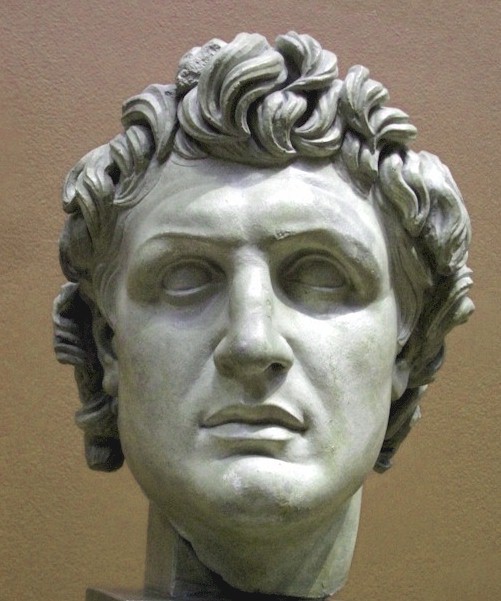Long-time ruler of Pergamum (in western Asia Minor) who
made his city a significant force in Mediterranean politics. A great-grandson of
Seleucus I
Nicator on his mother's side, Attalus inherited command of
Pergamum from his paternal cousin in 241 BCE.
Unlike his predecessors who for generations had bought peace
with Celtic tribes occupying central Anatolia, Attalus refused
to pay tribute to them. When these tribes, collectively called
Galatians, threatened Pergamum, he delivered them a
crushing defeat, earning him his by-name ("savior").
Attalus
then adopted the title basileos ("king"), asserting his
independence from
Antiochus Hierax, the erstwhile Seleucid ruler who used
Celts in his fraternal feud with Seleucus II
for control of Asia Minor. Though Celtic support helped Hierax
deal his brother a defeat at Ancyra (236 BCE),
this alliance provoked Attalus, who over the next decade won a
string of victories over both parties. His crushing defeat of
Seleucid forces on the banks of the Harpasus river (229 BCE)
drove Hierax out of Anatolia, leaving Pergamum in control of all
Asia Minor north of the Taurus mountains.
Such success did not long go unchallenged. In 225
BCE
Seleucus III
launched a campaign to regain Seleucid control of Asia Minor
only to be killed by his own troops (223 BCE).
Over the next several years, however, his top general, Achaeus,
reestablished Seleucid control of most of Asia Minor for
Antiochus III.
So by 219 BCE
Attalus was left master of little more than Pergamum itself.
Once in control of Asia Minor, however, Achaeus installed
himself as king at Sardis. This prompted Antiochus III to form an
alliance with Pergamum against Achaeus (216 BCE). While the former was besieging the upstart, Attalus was able to
restore Pergamum's borders.
Achaeus' death (213 BCE
) let Attalus focus on protecting his western flank. Already an
ally of the Aetolian league of Greek city states against
Macedonian incursions, in 211 BCE
he was chosen one of its pair of commandants just as Rome joined
the league to counter Macedonian king
Philip V's
alliance with Carthage. Within months Attalus took control of the
isle of Aegina, but gained nothing else from the ensuing five
year war with Philip. When Philip broke the truce, however, by
attacking Pergamum itself (200 BCE), Rome came to its ally's aid. Though Attalus himself was paralyzed by
a stroke & died before the Roman victory over Philip (197
BCE), his son
Eumenes kept Pergamum's alliance with Rome & contributed to its
victory over Antiochus III (190 BCE). So while
Attalus failed to make Pergamum itself a lasting powerhouse, he
played a pivotal role in redrawing the political map of the eastern
Mediterranean world.
References: Polybius,
Histories 4.44;
5.77-78,
107;
16:1-7,
25;
18.41.
Strabo,
Geography 13.4.2
Livy,
History of Rome 33.21.1-5.
Diodorus Siculus,
Library of History 28.5.
Other resources on
line:


![]()
![]()
![]()
![]() Perspective
on the World of Jesus
Perspective
on the World of Jesus ![]()